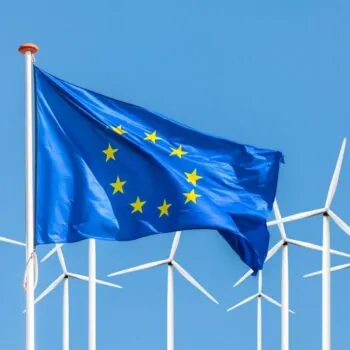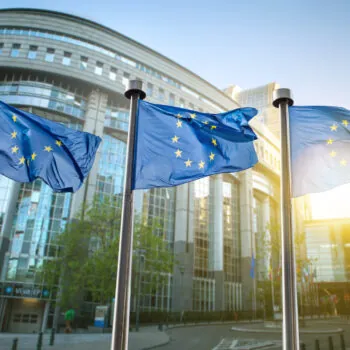Conversations in the corridors of the UN climate talks are often remarkably similar to playground gossip. Which countries are snuggling up to each other, who is ditching frenemies they’ve outgrown, who’s itching for a fight – and who can’t wait to head home. The most excitable chatter in the hallways in Paris has focused on the various alliances that have emerged more strongly and made an impact on both the mood and topics for discussion at COP21.
From ambition coalitions, to semi-formal dialogues between countries, to long-standing partnerships, the halls have been a-buzz with the latest gossip on who is getting close with whom. This is adding fuel to the exhaustion-induced hysteria, with Tuesday’s spontaneous press huddle hosted by EU and African, Caribbean and Pacific (ACP) group causing a tangle of tripods, journalists and rapidly-tweeting thumbs descend on the EU pavilion.
But what does it really mean for the outcome?
Pace is picking up
This kind of fluidity is what we’d expect as momentum picks up, and the different actors at play seek to land their demands in the Paris Agreement. This second-week spotlight on the various alliances at play should be taken in the context of the last year or two. Just think of the diverse groups that have found common cause in the divestment movement, from student activists to health professionals to investors; or that the Pope, Leonardo di Caprio, the World Bank and Ban Ki-moon are showing that birds of very different feathers are flocking together to call for climate action.
It’s also a sign of the times. The joint EU-ACP announcement inside COP21 builds on a long history of cooperation between these nations, on development and in trade negotiations. It is the first time this partnership has formally spoken together inside the UN climate talks, showing that climate change has soared up the list of political priorities and now unites a much broader set of countries – a fact also evidenced by the sheer number of world leaders and foreign ministers present here in Paris.
Got issues
The ‘political geometry’ inside the talks is also shifting as countries recognise how they can best serve their national interest. This might be addressing their vulnerability to climate impacts, such as through the Climate Vulnerables Forum. Or it might be the opportunity to seize the enticing opportunities of low-carbon clean development, which brought 120 developed and developing countries into the International Solar Alliance announced by India on the COP’s first day.
Countries are recognising that working together helps to achieve their aims, and this explains why substantive issues are at the heart of many of these alliances – whether that’s clean energy solutions or ensuring the Agreement has the necessary strength to assure the survival and dignity of citizens worldwide. The collaborative initiatives that have used Paris as their launchpad will have long-lasting impact around the world, but even at this stage in the conference we can see that negotiations-focused alliances are working. On the penultimate day of the conference, the current text on the table still contains a multitude of high ambition options, thanks to countries working together up to and during the COP. As we heard yesterday, “1.5⁰C is alive and kicking.”
Getting it straight
Just as we build broad coalitions in civil society to shift political decisions, in the UN climate talks we need countries to come together, have frank discussions about their priorities and identify elements of convergence. This helps crystallise where progress has been made in discussions, creating stronger pressure for the text to catch up with where there is political agreement. Translating diplo-speak into legalese is no easy task, particularly when you’re trying to shift energy economies worldwide let alone deal with the catastrophic impacts of climate change.
Building trust and investment in a collaborative method that delivers can unlock vital flexibility between countries and bring others on board. The speed of transformative change across the world, both in terms of clean power and the devastating onset of climate disasters, means assumptions about national interest are quickly becoming outdated, and efforts to pre-empt countries’ positions can fall flat. For instance, the EU-ACP group came out in joint support of countries upping their targets every 5 years – but Gabon’s minister was open that the timing of the first moment to increase targets was still being discussed. This ‘ambition mechanism’ is one of the most crucial issues in play here in Paris, but as with any part of a global exit strategy from fossil fuels: it’s complicated. We should value the time countries have spent over the past few years discussing the multiple facets of these issues and pooling collective experience to build ways forward together. Rushing through rarely leads to strong and robust outcomes.
Platform to raise the ambition
In this way, these alliances can give campaigners a vehicle to carry our demands into the negotiating halls we can’t access. Take the strong call of the Climate Vulnerables Forum for the Paris Agreement to recognise 1.5°C of warming as the ‘moral limit’ for certain nations’ survival. By working with civil society, young people and unions present at the conference, this informal alliance came together for a mass action to specify that to deliver 1.5°C, governments need to agree a 2050 phase-out goal this week and a mechanism to increase the current pledges on the table before the Agreement comes into effect More and more countries are now gathering in bold support of these issues, describing the ambition mechanism as the ‘heartbeat’ of the Paris Agreement.
Ultimately we need effective international cooperation if we are going to deal with a truly global issue like climate change, where all countries will be affected and no one country can protect its citizens alone. We need all countries to actively seek common ground, and clearly establish all the things that many in the international community are aligned on. This will allow ministers here in Paris to focus on which issues are outstanding, giving a clear steer to both governments and campaigners of where we need to concentrate our efforts in the final days of COP21.


